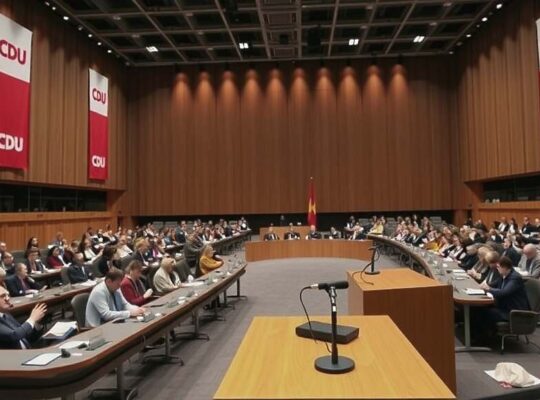The prospect of a prolonged tenure for North Rhine-Westphalia’s Interior Minister Herbert Reul is fueling a nascent political debate, as the CDU politician has stopped short of ruling out a third consecutive term in office. Speaking to the “Rheinische Post”, Reul indicated his willingness to remain in the position beyond 2027, contingent on the electorate’s preference and the support of state premier Hendrik Wüst. This raises questions regarding the established norms of political rotation within the state and the potential for a stagnation of leadership if Reul were to remain.
However, Reul’s potential longevity comes amidst mounting concerns over escalating youth crime, a situation he acknowledges defies simple reassurance. While official data reveals a recent 7.4% decrease in overall juvenile offenders, a drop from 107,962 to 99,984, Reul highlighted the persistence of violent offenses as a significant ongoing challenge. More alarming is the emerging trend of increasing female involvement in criminal activity; the proportion of female offenders under 21 has risen from 26.3% in 2015 to 28% currently, juxtaposed against a decline in male offenders, suggesting a potentially shifting dynamic in juvenile delinquency.
The nature of the crimes committed is equally concerning. The majority involve drug offenses, assault, theft and increasingly, sexual offenses, particularly the distribution and consumption of child pornography – a significant proportion occurring online. Compounding this digital element is a disturbing rise in attacks on teachers, with a 33% increase reported, reaching 837 incidents, pointing to a growing climate of disrespect within the education system.
Furthermore, data shows a 2.5% rise in reported assaults, climbing from 27,031 to 27,705, indicating a possible hardening of behaviour amongst young people. The combination of rising violence, the growing involvement of female offenders, the increasing digital nature of crimes and the assaults on educators demand a multifaceted and potentially radical response. Critics are already questioning whether current policies are adequately addressing the root causes of these trends and whether Minister Reul’s potential extended tenure will be accompanied by the innovative approaches necessary to effectively tackle this complex problem. The focus will undoubtedly shift to whether a sustained leadership can secure the necessary reforms beyond mere statistical adjustments.












